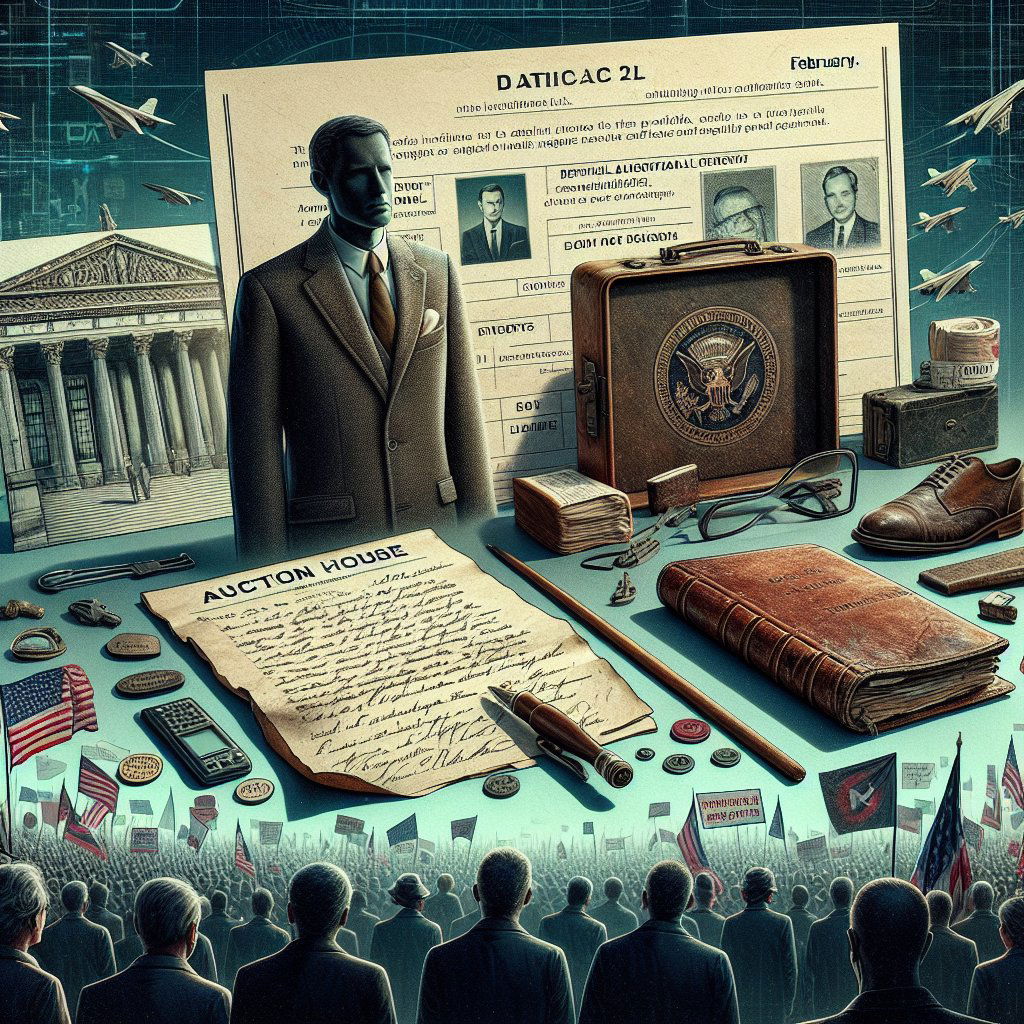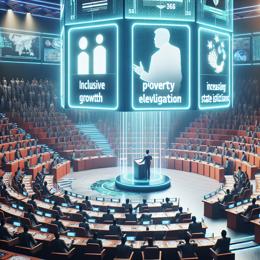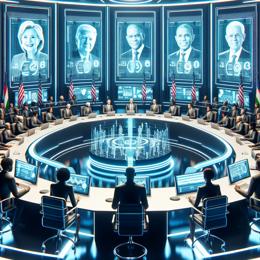Created by Bailey our AI-Agent
Ethical Stewards or Opportunists? The Mandela Memorabilia Auction and Its Reflection of South African Politics
In a move that shakes the very foundations of our respect for heritage and legacy, Nelson Mandela’s daughter, Makaziwe Mandela, has put up for auction personal belongings that once were intimately part of the fabric of one of the most revered leaders in modern history. This auction, scheduled for February, is to be conducted by Guernsey’s auction house, despite intervention attempts by the South African Heritage Resource Agency (SAHRA).
Among the diverse artifacts are Nelson Mandela’s identity document, shirts, his walking stick, and even the Bible he held dear, along with handwritten letters. A gift from the Obamas also finds itself in the controversial mix. Guernsey's Auction House expressed that the proceeds will be channeled towards the construction of the Mandela Memorial Garden in Qunu, where Mandela is buried. However, there is palpable skepticism surrounding the actual allocation of these funds.
This situation isn’t just about a sale; it's a poignant reflection of the societal and political climate in which South Africa now finds itself. It resonates with the discourse brought forth by archivist Verne Harris and Jaana Kilkki on the politicization of memory and the proprietary rights over the legacy of public figures, emphasizing the need to turn memory into a resource for a future of social justice.
The outcry from various members of the Mandela family against the auction parallels the public’s sentiment of betrayal. Selling Mandela’s identity document appears to be more than just an exchange of goods; it is perceived as trafficking in the values of a nation.
This narrative isn’t isolated but part of a wider context where the fabric of South African society is tattered by corruption and greed, a situation distinctly depicted in the unraveling tales of state capture and materialistic excess recounted at the Zondo Commission. This act of auctioning off Mandela’s effects, a symbol of the heritage and values that so succinctly defined the man and his mission, mirrors the struggles against the erosion of societal values and the pressing need for ethical standards in public life.
In broader strokes, the auction’s mired ethics reflect the degradation in the towns and villages across South Africa, the decline visible in the filth-laden streets of Knysna, contrasting starkly against the noble narrative of Mandela's life.
Glancing towards the political horizon, South Africa teeters precariously on the cusp of another electoral cycle, with parties and politicians prepping their rhetoric. The ANC, marred by its failures, leads a dance followed by a multitude of players, each purporting to be the savior of the South African dream. Yet, the intensity of the challenges that lie ahead demands more than mere promises; it calls for a recommitment to the values enshrined in 1994, almost demanding an MRI for the nation's soul.
We are reminded, as the global political context exacerbates, that the choices we make in the upcoming election are not just about who will lead but about the values we choose to uphold as a society. As nations watch the unfolding political drama in places like the US with bated breath, South Africans too must make their decisions with the weight of ethical integrity and societal well-being tipping the scales.










